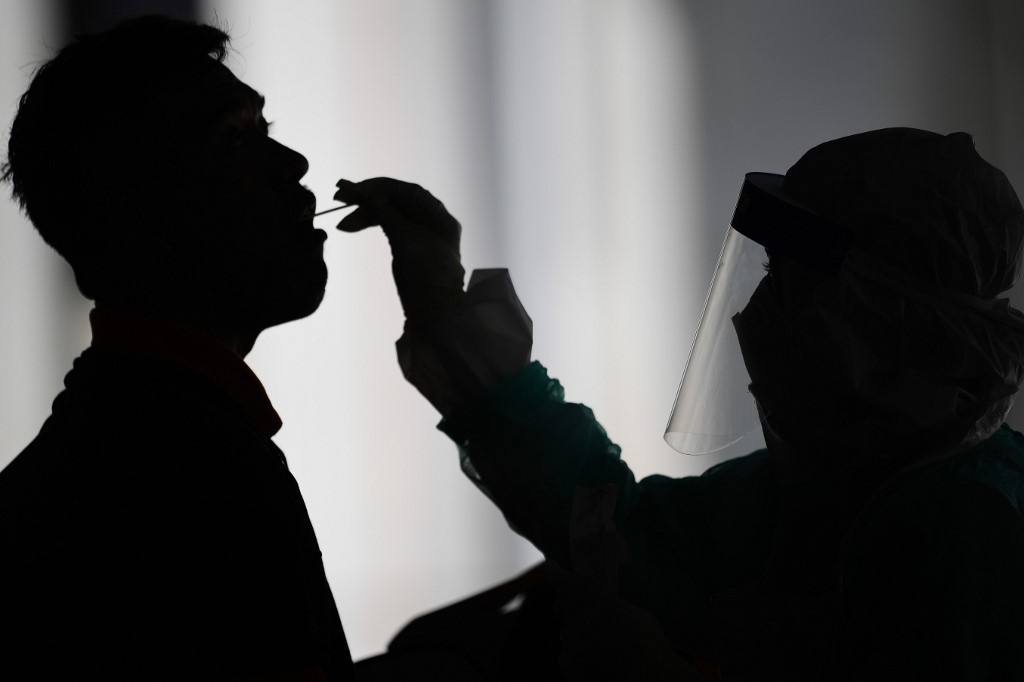A U.S. patient with Covid-19 symptoms gets tested, then waits over a week for the results. The story is by now familiar and sometimes tragic.
Yet the stock market is telling a different tale. Shares in companies like Quest Diagnostics and Laboratory Corporation of America are soaring. Quest’s Chief Financial Officer Mark Guinan said on Thursday that detecting Covid-19 brings “good margins.” In other words, testing has become a profitable disaster.
Commercial labs were hit hard by the pandemic, but their market values have recovered sharply. Within a month of its early March high of just over $15 billion Quest’s fell by around a third, but is now $17 billion. LabCorp too has recouped its pre-pandemic peak of $19 billion.
Coronavirus diagnosis has more than filled the gap left as other procedures go on hiatus. Analysts polled by Refinitiv now predict Quest, which reported a 6.4% decline in quarterly revenue on Thursday, will earn $1 billion this year – over 10% more than they estimated six months ago.
No wonder: testing is lucrative. Last year Quest made on average $42 in revenue per procedure, based on numbers from its financial filings, and the average processing cost was $29. For Covid-19, the basic price set by government-backed insurer Medicare is $100. True, pandemic testing is unusually fiddly and more reliant on humans than some other types. But even with double the normal level of expense, to reflect the extra quirks and intricacies of the coronavirus, the company’s coronavirus-test margin would be one-third higher than it generates from its regular activities.
Feeding frenzy
Other companies are jumping in, too, like Aegis Sciences, a Nashville, Tennessee-based firm that is close to offering 15,000 tests a day. Or NeoGenomics, a cancer lab that is now performing around 10,000 Covid-19 tests daily. But the economics don’t favor smaller labs. Buying new machinery is expensive, and staff have to be retrained and incentivized to work in tough conditions. Meanwhile the pressure is high, because Covid-19 is understood to be infectious even before symptoms appear. Even the two days that labs target leaves plenty of room for contagion to spread.
Companies like Quest say they’re investing hand over fist – but it’s hardly appealing to build capacity they might not need six months from now. The Rockefeller Foundation has estimated the United States will, over time, need 30 million tests a week. Yet most of these, it envisages, would be screening people who are presumed not to have the virus, ideally using quick-turnaround antigen tests that can be performed at school gates, office lobbies or points of care. Only 5 million or so tests would be diagnostic tests that are better done through labs – not much more than are being conducted now.
Overarching all of this – and increasing patients’ misery – are problems market forces can’t fix. The most egregious is the physical shortage of swabs and test tubes. Even in normal times, it can take up to a year to get a lab ready to deliver a new test. But the surge in demand has strained existing supply chains to breaking point. For unknown reasons, Donald Trump’s administration has mostly declined to use the powers the president wields under the Defense Procurement Act to co-opt manufacturing capacity or provide loans to vendors.
READ MORE: Five takeaways from the latest data on coronavirus vaccines
Each state is responsible for meeting its own testing requirements, but each has its own idea of what labs should do. A letter from New York state seen by Breakingviews warned at the end of June that labs must report patients’ address, job, employer phone number and ethnicity, among other details – and that lab directors who don’t follow the rules could be accused of a class-A misdemeanor, which can incur jail time.
Meanwhile, there’s the bigger market failure that plagues U.S. healthcare: Payment and outcomes aren’t linked. Aegis Sciences, for example, has declined requests for testing so it can maintain two-day turnaround times. Quest and LabCorp customers, though, can end up waiting far longer than that. Insurers will pay even when tests are so late as to be useless, so the risk is that big labs with profit margins at stake have an incentive to keep piling up the samples. That means share prices will keep rising, and many patients will keep waiting.
- By John Foley at Reuters #johnsfoley
























